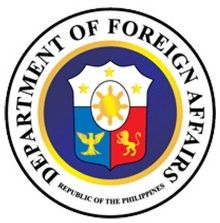PH joins new int’l initiative on climate change, disaster refugees

The Department of Foreign Affairs said Ambassador Evan Garcia, the Philippine Permanent Representative to the United Nations in Geneva, was asked to take part in the steering group of the Nansen Initiative, a global program that hopes to “enable states to better address the increasing displacement of persons around the world due to natural disasters.”
Led by Norway and Switzerland, the Nansen Initiative aims to come up with “more coherent and consistent approach to the protection of people displaced across international borders by sudden onset disasters, including those triggered by climate change,” the DFA said.
The initiative, named after the first High Commissioner for Refugees and polar explorer Fridtjof Nansen, was launched during the annual Executive Committee meeting the UN High Commissioner for Refugees in Geneva on Oct. 2.
“Ambassador Garcia … was invited to join the Nansen Initiative’s Steering Group, in light of the Philippines’ leadership in migrant advocacy and climate change adaptation,” the DFA said.
According to Switzerland’s Federal Department of Foreign, the initiative hopes to plug a loophole in UNHCR instruments that protect refugees.
Article continues after this advertisementUnder the initiative, governments and civil society organizations in countries with an incidence of disaster-related migration will gather in consultations over the next three years “with a view of formulating a protection agenda,” the FDFA said.
Article continues after this advertisement“While displaced persons are protected in their own country by the UN guidelines on internal displacement and by regional instruments, there is a gap in legislation governing cross-border movements caused by natural disasters,” the Swiss foreign office said in a statement posted on its website.
“Usually such persons are not victims of persecution and are therefore not protected under the UN Convention on Refugees. Moreover, the Human Rights Conventions do not govern key aspects such as the right to enter a country, settlement and the basic rights of those affected,” the FDFA said.
Citing that “millions” of people are forced to leave their homes due to natural disasters, the Swiss office said there is currently a lack in criteria to classify cross-border movements between those caused by natural disasters or cases of voluntary migration.